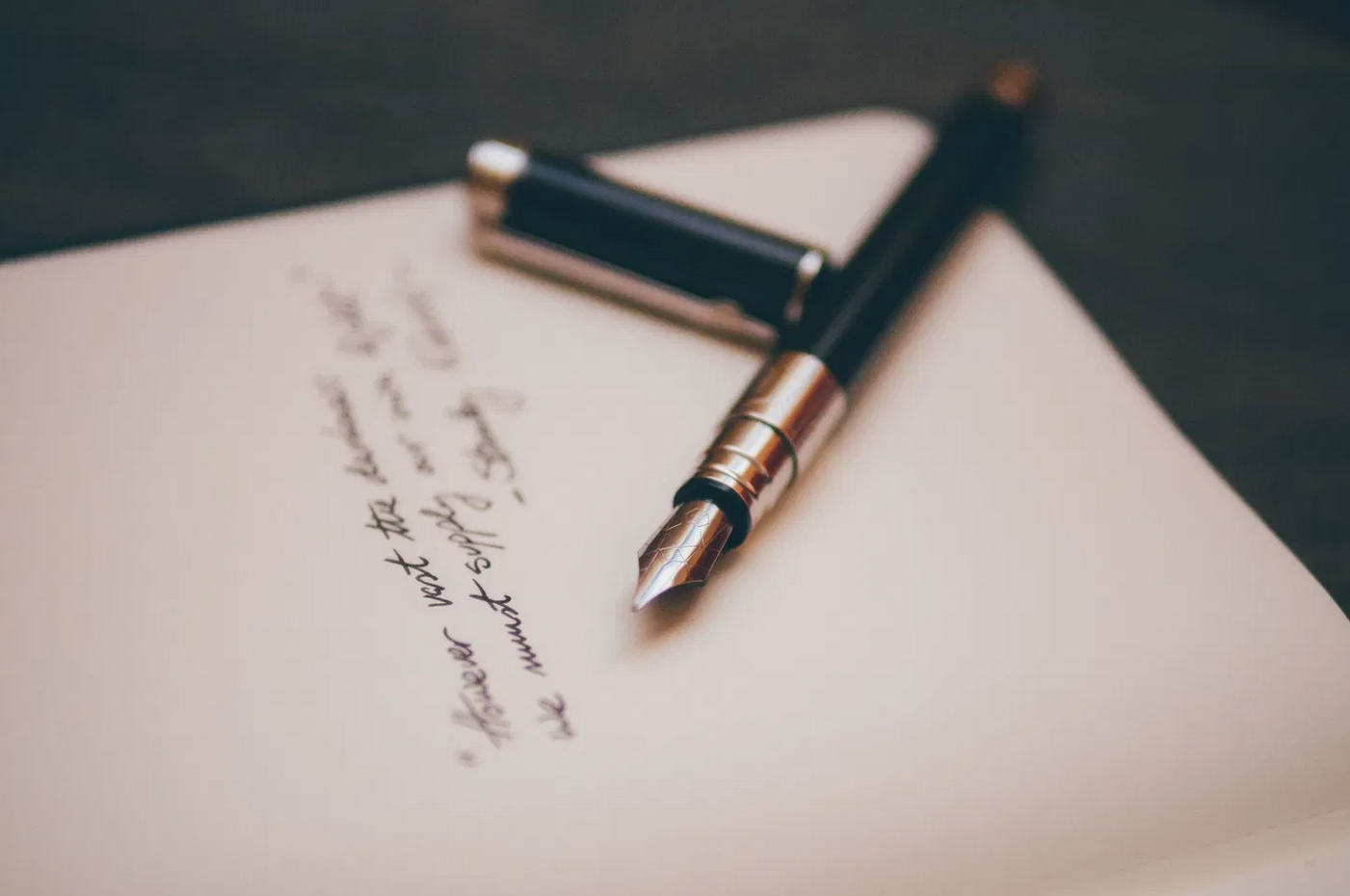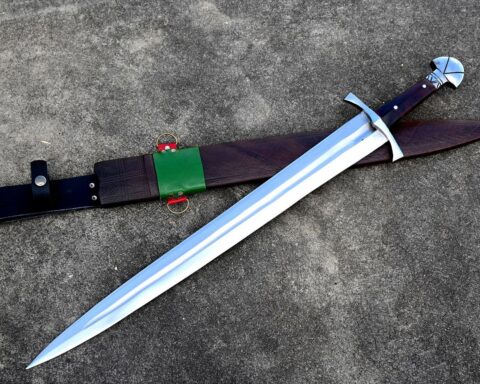As Poet Laureate for the Men of the West, I suppose I’m uniquely qualified to write this article. But mostly I’m plagiarizing my old college lit prof, Dr. C., who deeply influenced my writing.
I’d written poetry before taking his courses, but not much, and much of that not at all good. It took his tutelage to whip me into shape. There are a few pieces from that era I’d love to dig up, but alas are trapped on hard drives I cannot currently afford to recover (curse you, Western Digital.)
Poetry gets a bad rap, and often deservedly so. Many are taught it’s feminine, or gay, or undecipherable, or has to rhyme, when in reality none of these things are true. “Warrior Poet” is an ancient term of art, after all, and poetry can be a deep and meaningful intellectual pursuit, both for the writer and the reader. I mean, GKC, J.R.R. Tolkien (a Great War combat veteran), Hilaire Belloc, and C.S. Lewis, four of our Western intellectual giants, all put significant effort into their poetic achievements. By the by, one of the greatest verses in poetic history was penned by GKC:
“The Great Gaels of Ireland
Are the Men whom God made Mad,
For all their wars are Merry,
And all their Songs are Sad.”
And then of course, this gem by Belloc:
“Whatever happens
We have got
The Maxim Gun
And they have not.”
So what is poetry? Well, Dr. C. taught me, in his thick Southron drawl, that it’s a form of writing “that don’t reach the right margin.” Which is about as good a definition as you can get, because it’s true. “Roses are Red, Violets are Blue” is not the be all and end all. You have all sorts of poetry: there’s metered verse, haiku, sight-rhyme, alliterative, allusion, free verse, and within those so many other subcategories as to be too much for a brief article of this scope. I prefer alliteration and free verse, but I’ll write metered verse from time to time. I just don’t care for it as much, because it’s often too sing-songy to me, and I’m more interested in the ideas and the thought-imagery I’m presenting than in making my work easily accessible for the asshole who pulls out the acoustic guitar at the room-party and pretends anyone wants to hear his crappy strumming over conversation.
Why should you care about it?
The Iliad, the Odyssey, the book of Psalms, the Song of Solomon, the Aeneid, just to name a few reasons to care. Poetry and song are intertwined, of course, and are a bedrock of all culture and civilization. Inasmuch as they are a bedrock, they are also a reflection thereof, a bellwether. Look at the likes of, say, Allan Ginsberg. Now, I’m certainly not a fan of Ginsberg’s content at this point in my life, but I cannot deny that he was extraordinarily talented. But if you want to see Boomer Culture as informed by a Silent, read Ginsberg. Postmodern to its core. It’s the very soil in which their culture was planted. Then compare that to say, a Frost, or an Eliot, both Modernists (well, some might get hung up on Frost but I put him in the Modernist camp due to chronology over content. He was more like me: two poetic generations behind his lifespan.)
The poets influence the musicians who influence the pop-culture. You can tell a story with fewer rules than you can with prose. You can approach things in non-intuitive or counterintuitive ways, or present it straight up. You can leave more room for interpretation.
Now, literary-career-wise, it’s a bit ironic. I never saw myself as a poet when I first started writing, much less getting paid to write. My focus was first on sci-fi, then on satire, and now back to sci-fi, but I’ve sold more poetry than all of my fiction or nonfiction work combined. It’s a tough market, so even making a little beer-money off it is far better than the average philosophy/lit dual major bitching about Byron at Starbucks. I’ll never make a living as a poet, but I’ll never stop writing poetry because it’s fun, cathartic, and apparently I’m pretty good at every aspect of it. Most poets are terrible at marketing and thus selling their work. The ones who are any good at making money at it tend to take the moniker of “songwriter” — because of the higher level of influence — and that’s fine, but it really is the same thing except they tend to focus on metered forms. I just write poems about whatever is on my mind and then eventually accumulate enough to put into a book, then sell the hell out of it.
How can you write it?
Easy. Start writing, but don’t let those lines touch the right margin. Use the line breaks as a tertiary form of punctuation (but don’t go e.e. cummings on us. For the love of all that is good and holy, don’t do that.) Have an idea, an experience, a thought image to convey, and go to town. Make it rhyme, or don’t. Alliterate. Imply. Allude. Do all of those things, or whichever forms you wish to throw into the literary blender. I do encourage newbies to the form to focus on metered poetry, because it is more difficult to write (free verse is easier to write, but is more difficult to write well.) It takes a long time to get any good at it. And of course, read a lot of poetry as you go. Don’t just read one poet, read dozens. Ignore the shit they taught you in high-school and basic college lit. Get some Wilfred Owen in there and read war-poems. Read the Classics. Read some obscure poets. Dig through the schlock and find some contemporaries (other than me, of course, we can assume that you’ll go there.) Find what you like, and at first you’ll imitate it (almost unconsciously), but the more you read and write, the more you’ll develop your own style.
Even if you never want to publish it or admit to writing it, it can be therapeutic, relaxing, frustrating; an intellectual and emotional workout. It’s not for everyone, but if you like writing at all, try it if you haven’t. Or try it again if the last poem you wrote was a variation of Roses are Red in 4th Grade.
I’ve been writing for 25 years, since I was 11, and I found that my prose improved considerably when I learned to read, write, and enjoy poetry. It helps impart economy of language. Does that mean everything I write is any good? No. It’s usually a 5:1 ratio against for the poetry I actually publish in my books, because I’ll sit and write something, look at it, then look at it sideways, and call it crap — because it is. And not everyone likes everything I write, either, or my style. It’s all a matter of taste, ultimately, but it’s worth exploring. It can be kind of like figuring out which vegetables you actually like, especially if you prefer being a carnivore by habit.
With that, I’ll leave you with a piece from my newest book of poetry, LAUNCH EVERYTHING; LET GOD SORT IT OUT (Kindle here, autographed copies for preorder here. Regular paperbacks will be available on Amazon in a week or so.)
boundaries
Ian McLeod
the faded skull and bones
sign
on the barbed wire
this side o’the DMZ
which that poor statue
in the binoculars
–God,
with such brazen confidence–
ignored
just nine footsteps
and one deafening ‘click’
ago.
nothing to be done now.










Poets like Alan Ginsberg are really Anti-Poets, and you should despise them. Their artless, nihilistic dreck is what has ruined poetry, much in the same way that artists like Rothko ruined art or composers like Shoenberg ruined high music. These subversives turn the artistic forms against themselves in a war.
I say we praise the real poet warriors, those who fought to breathe life and goodness into the art!
I have a different take on it; it’s a culture war we’re fighting. It does no one any good to underestimate the skill of the opposing force. My honest assessment about Ginsberg specifically, and a few others of his ilk, was that they were/are good at what they did. Don’t like the content, but appreciate the delivery. Now, some of the poets of that era were indeed complete garbage both in terms of content and form, but Ginsberg could weave words well.
It’s analogous to appreciating Yamamoto for being a brilliant admiral who saw all the flaws in his superiors’ strategy against the United States, but did his best with what he was ordered to do by those superiors. Does that mean he was a good guy? Not in the least. But it is undeniable that he had the skill to conduct the war for as long as he did and as well as he did. Had he not been shot down when he was, he might have been able to further prolong the war in the Pacific. His successors certainly lacked his acumen.
A haiku that makes certain people mad:
Your nation needs more
awesome people just like you.
You have to go back.
hah! Excellent.
I’ve tried my hand at writing poetry sporadically. I thought up this one a few weeks after reading one of those retarded articles about lifting being racist or something:
Of all the cults that ever tread
The ground beneath the sky
The one I most wish gone and dead,
Is the Church of the Weeping Eye.
The Weeping Eye is soft and still,
‘Till all is right as rain
Then out they slither, and yell “Come hither!
And hear our tale of pain!”
For every wrong that was ever did,
Was done to them it seems,
But the evil they did, and the wrong that they hid,
Are to them naught but dreams.
Oh, the Weeping Eye seems noble and grand,
So long as thou art weak
But become a man strong, and you’re all wrong,
And a tyrant to the meek.
“Thou shalt ne’er improve thyself”
Is their statute and their god
For Virtue’s seeker, oppresses the weaker,
They assert with a jiggling nod.
So mock and disdain, all claims of pain,
From the Church of the Weeping Eye.
They can do naught but lie, until they do die,
And the strong shall stride forth yet again.